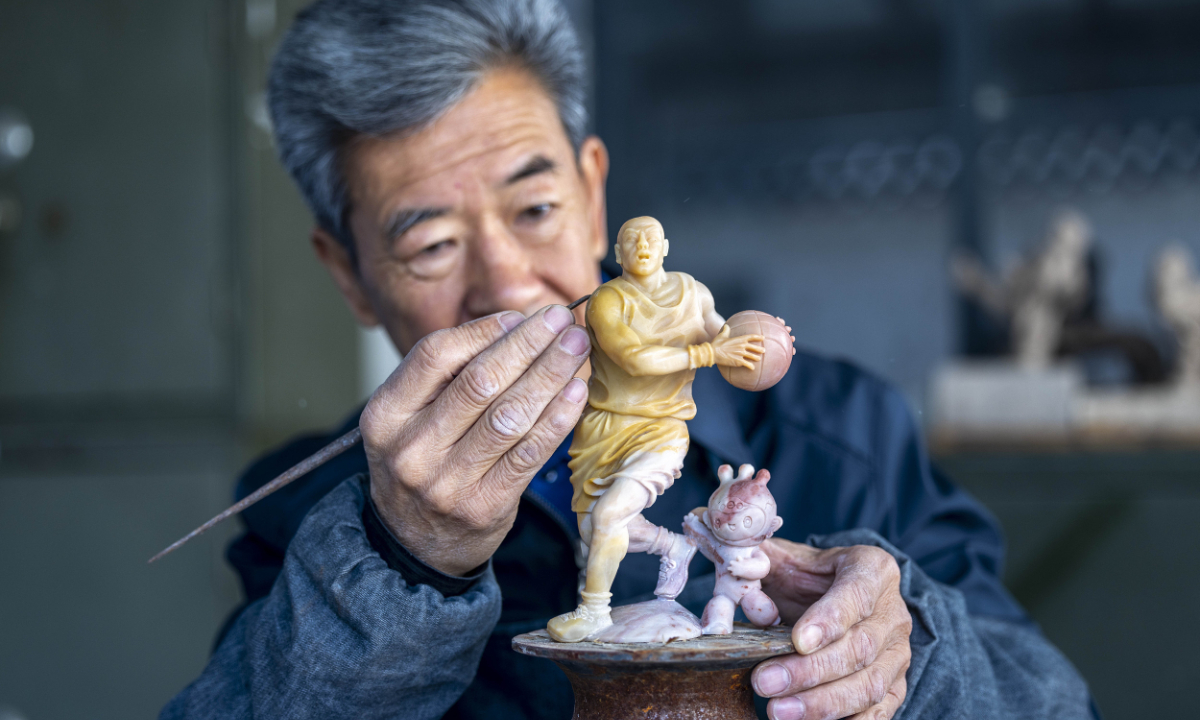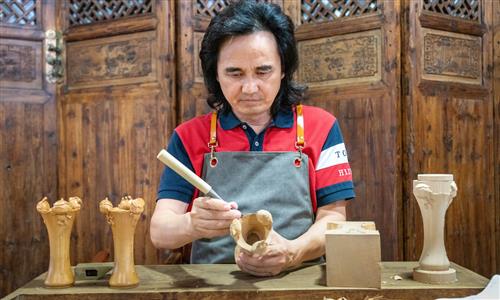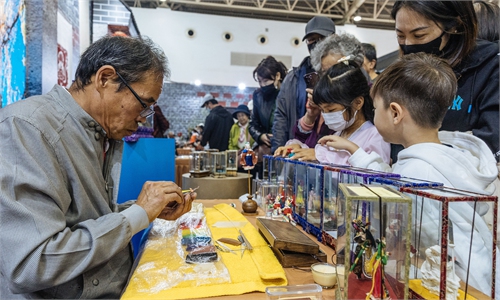ARTS / CULTURE & LEISURE
Multiple national-level intangible cultural heritage units in China face suspension or removal of qualification

Qian Gaochao, an inheritor of China's intangible cultural heritage of Jixue stone carving, works on an Asian Games themed stone sculpture in Hangzhou, East China's Zhejiang Province, on February 22, 2023. Photo: CFP
Multiple national-level intangible cultural heritage units in China have been suspended their qualifications for rectification or have their qualifications revoked, according to an announcement from the Ministry of Culture and Tourism on Wednesday, an effort to further enhance the protection of the country's intangible cultural heritage.
In order to strengthen the responsibilities of these protection units, the ministry has organized an evaluation and adjustment of their performance and responsibilities, according to the notice.
The results of the evaluation revealed that the Shanghai Qianwanlong brewery, which is responsible for preserving the art of Qianwanlong soy sauce brewing technique, failed to meet the required standards and has been temporarily suspended from applying for national-level intangible cultural heritage protection funds. The brewery has been also given a specific timeframe for rectification.
According to domestic corporate portal Qichacha, the brewery was founded in Shanghai in 1993. In 2019, it was included in the list of national-level intangible cultural heritage.
Three other units were found to be inadequately fulfilling their responsibilities, leading to their removal from the protection list. These units are the Xiahe county cultural center in Northwest China's Gansu Province, responsible for protecting the Gannan Tibetan Thangka painting; the cultural station at Lunjiao street in Shunde district, Foshan, South China's Guangdong Province, preserving the traditional technique of the Gambiered Guangdong gauze (Xiangyunsha); and the cultural center of Lishui, East China's Zhejiang Province, responsible for the preservation of the traditional She ethnic medicine.
Zhou Xueying, a professor at Nanjing University's School of History, told the Global Times on Thursday that the actions taken by the ministry serve as both a form of discipline for underperforming units and a means of strengthening the management of China's intangible cultural heritage.
"Rewards and penalties are beneficial for the preservation and sustainable development of intangible cultural heritage, considering the ease with which such heritage can be lost due to its unique characteristics," he added.
According to the notice, a total of 2,981 protection units were assessed as meeting the required standards. Another 619 protection units have been required to be revalued as they underwent major changes in their organizational structure and didn't meet the basic conditions for protection units.
Furthermore, three previously vacant protection units have been recognized as qualified and 12 areas or entities that applied for protection unit status were not granted recognition, said the notice.



